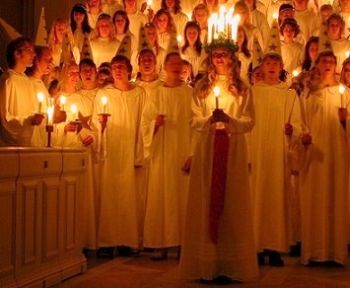 “I the Lord, your God, teach you what is for your good, and lead you on the way you should go.” This verse in scripture from the book of the prophet Isaiah sets the tone for the rest of the readings for mass today. It seems so simple and in theory it is, but in practical ways it is a lot more difficult to hear God’s voice speaking to us in every day life. Even if we hear God’s voice, it is still very tempting to ignore His gentle promptings and go on our merry way.
“I the Lord, your God, teach you what is for your good, and lead you on the way you should go.” This verse in scripture from the book of the prophet Isaiah sets the tone for the rest of the readings for mass today. It seems so simple and in theory it is, but in practical ways it is a lot more difficult to hear God’s voice speaking to us in every day life. Even if we hear God’s voice, it is still very tempting to ignore His gentle promptings and go on our merry way.
It sounds like God is scolding us in the next sentence in the first reading, “If you would hearken to my commandments …” He is almost like a parent telling their wayward child, “if you would only listen to me!” Children do not always want to listen, and neither do we sometimes either.
The responsorial psalm is usually not mentioned in reflections on the readings for mass, but today’s psalm seems to fit perfectly with the readings. (Psalm 1: 1-2) It’s hard to ignore it:
“Happy are those
who do not follow the advice of the wicked,
or take the path that sinners tread,
or sit in the seat of scoffers;
but their delight is in the law of the Lord,
and on his law they meditate day and night.”
These are actually the very first words that are recorded in the psalms, the very first piece of advice or guidance that was foremost in the author’s mind that he wanted to pass on to us. We should pay attention to these important words so that we will be like the tree planted near running water that yields it’s fruit and whose leaves do not fade. The last sentence of the psalm today says, “the way of the wicked vanishes” and perhaps it is because they do not have the deep roots of our faith in God, and our total dependence on Jesus Christ through the sacraments of our church.
In the gospel today, Jesus is trying to describe the people of his time. Things have not changed much in 2,000 years because the same words he used to describe the people of his time, apply to ours equally as well. We are like the children who sit in the marketplace and call one another:
“We played the flute for you but you did not dance, we sang a dirge but you did not mourn.”
Many people lose their zest for life, or get too wrapped up into their everyday duties and responsibilities to remember what it feels like to dance. We forget what it is like to enjoy the simple pleasures of life, like sunsets, sitting by a fire, watching children play, or looking at the stars in the night sky. A fresh snowfall is especially beautiful and so is a walk outdoors in any season, if you take the time to appreciate nature and the little birds and animals you see.
Our senses are dulled by too much technology and too many chores and tasks to be done every day. We can also become a little jaded if we live in a city and are around people constantly. We don’t have time to stop and interact with every person we encounter, so we shut many of them out of our field of vision. This has happened in big cities to the point that there are people who witness a murder and walk on to their homes without ever calling the police. An ambulance could have saved their life in many cases. There are laws against this in major cities now. It is the same with child abuse too. We are required to report it if we witness it. It is against the law not to report it. It is a shame that laws had to be created to make us compassionate enough to help our fellow human beings.
Today’s thought might be to look at our lives and see how we have become jaded and less compassionate than we used to be when we were young. Can we still feel happiness or joy? When was the last time we actually felt happy? Feelings are important and a necessary part of life, both for our own well being and those around us as well.
The last sentence of the gospel is, “But, wisdom is vindicated by her works.” It is possible that we are already living a full, rich life of loving God and other people and being of service to those around us. If so, the challenge is to keep our hearts soft and open so that love may enter in. Advent is a time to listen to God, with an open heart.
